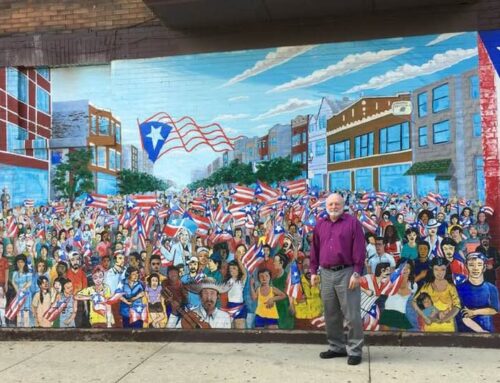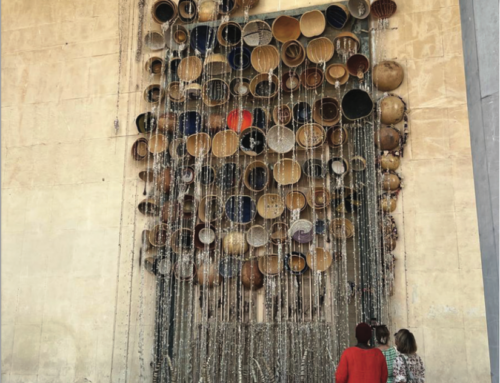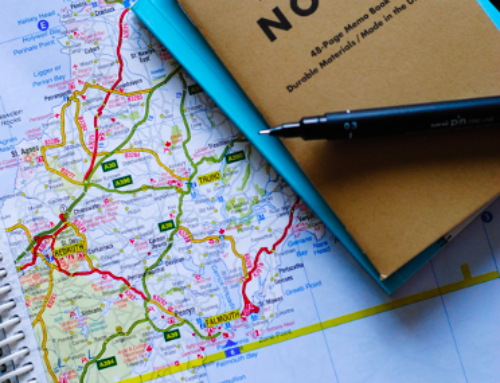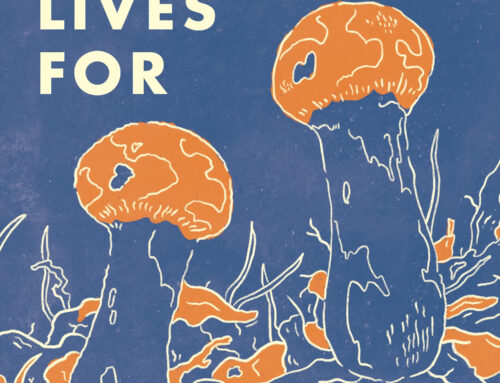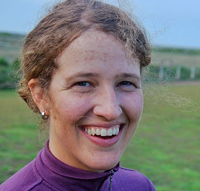 Interview by AE editorial intern Deniz Daser (Rutgers University)
Interview by AE editorial intern Deniz Daser (Rutgers University)
In the August 2013 issue of American Ethnologist, Heath Cabot’s article about asylum seekers in contemporary Greece explores “an often overlooked form of agency: how aid candidates and service providers alike reshape and even refuse dominant images of deservingness, victimhood, and vulnerability from within systems of aid distribution.” Check out her article, titled “The Social Aesthetics of Eligibility: NGO Aid and Indeterminacy in the Greek Asylum Process.”
Asylum eligibility interviews are sites of indeterminacy that Cabot explores through an analysis of social aesthetics, in which individuals are often able to “reshape and even refuse dominant images of deservingness, victimhood, and vulnerability from within systems of aid distribution.” The search for eligibility always unfolds in dyadic (or triadic) ways and is always fraught with serious implications for these asylum-seekers.
Cabot’s ethnographic focus is the complex interactions between Dimitris, an NGO lawyer, and Sarah, an asylum-seeker from Ghana. While Dimitris tries to coax from Sarah a particular narrative of standard asylum-seeking that would enable her to remain legally in Greece, Sarah pushes back against that effort.
In a conversation about her AE article and the broader implications of her research, AE editorial intern Deniz Daser (Rutgers U) asked Dr. Cabot what she sees as the primary intervention of the article. Her reply:
Heath Cabot: This article is the product of long-standing attempts to take account of social relationships that are at once deeply dialogical yet radically unequal. Something that troubled me early on in the project was how to acknowledge the crucial, and at that point, still very much emergent critiques of human rights and humanitarianism stemming largely from the scholarship of Foucault and Agamben–in particular the work of Miriam Ticktin and Didier Fassin, with regard to immigration in the European context. Yet I also wanted to attend to earlier interventions by linguistic anthropologists that emphasize the coproduction of repertoires, knowledge, and social norms. Along these lines, my issue with Foucauldian-inspired discussions of governmentality and the “production of subjectivities” was that they often seemed to leave out the question of how these subjectivities emerge in real time, through actual encounters between people. Scholars who study the relationship between law and language, however, provide real insight into the dialogisms that emerge through relations of power (as in the work of scholars such as Gregory Matoesian, Elizabeth Mertz, Susan Hirsch, Ilana Gershon, and Justin Richland).
I wanted to bring such perspectives to bear on the critique of rights and humanitarianism to see how this critique could become even more textured, grounded on a concrete exploration of intersubjectivity. João Biehl’s work has also been very important in opening up a space for this, and I also believe a number of younger scholars of humanitarianism are working with some version of indeterminacy. (Indeed, Peter Locke, Saiba Varma, and I have organized a double panel on this topic for the upcoming AAA meetings: “Aid Encounters and the Indeterminacy of the Social”). But I do think that a focus on dialogism and coproduction is still often taken to signify a somewhat sanguine approach to power relations. Instead, I try to show how power relations themselves take shape dialogically.
Deniz Daser: Can you talk about how you came upon the theoretical intervention of social aesthetics and what it can explain that other theories miss in the lawyer-refugee encounter?
HC: I came to the model of social aesthetics by working through the ethnographic vignette that I open the article with: the lawyer Dimitris’s description of the “whole picture of the case” being the key factor in eligibility decisions. “Dimitris” is someone with whom I have remained in close conversation, and when I tell him of this discussion he doesn’t even remember it! But for me it stood out as a real “ah ha” moment. His description, of course, has visual components (whole picture, or whole image) but more broadly, it can be taken to refer to the whole panorama of the senses, which in Greek is the realm of the aesthetic. The Greek root of aesthetics refers more broadly to feeling, not just visuality, and also connotes a particular way of knowing and judging: e.g “I feel this is true or correct.”
But in English “aesthetics” is so overdetermined as referring to the visual field that “aesthetics” by itself was not sufficient as a model for what I was trying to do. So I returned to an early but influential article by my former graduate advisor and mentor Donald L. Brenneis, in which he speaks of social aesthetics in terms of performer/ audience interaction and the range of sensorial components that go into these engagements. While his article is about an Indian community in Fiji that sees itself as “egalitarian,” I found his model really got at the complexity of the dialogical, though always already power-saturated, interactions that I had been looking at (Donald L. Brenneis,1987. Performing Passions: Aesthetics and Politics in an Occasionally Egalitarian Community. American Ethnologist 14: 236-50). I am also simply referring, more broadly, to aesthetics as a way of knowing through the senses, which is of course at the heart of Kant’s theory of knowledge and judgment. Aesthetics as a “knowledge practice” refers to that element.
DD: You talk about being involved as a volunteer in an NGO assisting and assessing asylum-seekers’ claims and working with lawyers, interpreters, and asylum-seekers. In particular, you discuss how you approached “workers themselves from a ground of common rapport that recognized the uncertainties, anxieties, and other challenges that characterize their work” and also the diverse linguistic repertoires you and other workers had to draw upon. How did you navigate this terrain as an ethnographer?
HC: A second important theme of the article was this issue of ethnographic knowledge and ethics. I focus on it more directly in my book (provisionally entitled Seeking Refuge: Tragedy, Asylum, and Citizenship in Contemporary Greece, forthcoming, Penn Press). Upon starting fieldwork I had — let’s face it — a somewhat naïve idea that I would be able to move between different actors such as asylum-seekers, lawyers, and bureaucrats, across that saturated field of power relations. In some ways, I did this, but it was – of course! – deeply fraught. At points, I was viewed by some lawyers as problematic and, in a way, unruly, owing to my connections with migrant communities. Meanwhile, my connections with lawyers made me a potential object of suspicion among migrants and asylum seekers themselves. But my position as an outsider on both sides was helpful. While I was clearly not an asylum seeker, the fact that I was not Greek was a point of commonality with some asylum seekers, in that I too was trying to figure out the Greek system, and this also absolved me in some ways of the frustrations and suspicions that many felt toward Greece and Greeks. But eventually, acquaintances of mine in migrant communities started coming into the NGO and asking for help, or asking me to push their case forward, find them a lawyer, etc. I tried to be helpful in ways that were at least minimally commensurate with NGO practice. But in the end there was no satisfactory way to deal with that without really upsetting my relationship with the NGO. And in most cases, there was simply nothing concrete that I could do to respond to these requests (after all, I am not a lawyer).
DD: What kinds of solutions, if any, did you find to these dilemmas, in both the field and in writing up?
HC: Hussein – a refugee – told me, quite wisely: “you will have to write two books- one for the refugees and one for the lawyers.” In the end, I wrote one book, but it’s largely about the lawyers. I made a choice to focus on the NGO. Part of that was pragmatic. I had learned Greek, and many of the asylum-seekers spoke a multitude of different languages. So, language was key. But there was also a structural issue, in that I was associated so clearly with NGO workers in terms of class, race, and power relationships.
Over time I really became part of this problematic, fraught working community and I developed relationships with many of the workers that persisted past that initial trust-building phase into something that stood the test of time. Dimitris, for instance, didn’t really speak much to me for the first few months: he was so busy, and I was just this American volunteer. But over time, I think many of the lawyers felt that I “got” the difficulties of their work, and that I too was in the same boat, in a way. When I mention a “ground of common rapport,” that is what I am referring to.
Having just returned from a trip to Athens, in which I spent significant time discussing this topic with Dimitris and his wife (who have become dear friends), I am even more convinced of this “common ground.” He told me, quite emphatically, that our conversations did not just affect me, but they also affected him, the cases that he took on, and his approach to thinking about asylum seeking and even justice. He described this as “dialectic,” in a Platonic sense: that in being asked about one’s work, one must reflect upon and articulate the reasons behind it, and perhaps even transform one’s perspective – which is, for him, a key dimension of “justice.” This is one of the most exciting pieces of feedback I have received in that it says so much about the possibilities of ethnographic encounters and their transformative potential (for all involved).
DD: What ethical dilemmas did your relationships with lawyers and refugees at the NGO, and your active presence in the work, raise for you?
HC: This set of relationships was, of course, deeply charged ethically. I was recognizable as someone working at the NGO, in a way, and I did indeed have some control over cases. The case I discuss in the article was one I took charge of and, in many ways, tried to push forward. On the one hand, I am so deeply critical not just of the Greek asylum process but of the category of asylum in general. But on the other hand, the people I was spending my time with were trying to do something within a broken system. I don’t want to write off the ethical complexities of this position but instead want to put it front and center. Kim Fortun, in her book Advocacy After Bhopal (University of Chicago Press, 2001), talks about advocacy (and maybe by extension anthropology) as about always being “caught in the act.” No one is innocent in advocacy or in anthropology. This certainly does not absolve us from working to be responsible, but I think most anthropologists recognize that it is an obligation to acknowledge that ethical complexity is at the core of our work.
DD: Do you see your research as part of activist anthropology or engaged anthropology?
HC: I’m still working through that. I would like to think of my work as “engaged,” but I also believe that one must seek a more diverse audience for one’s writing, and I am still struggling with how best to create such a venue. I certainly didn’t set out to work at an NGO and help people with the asylum process. But I very much learned to appreciate the possibilities of what can happen even within such fraught, power-saturated, and literally exhausting sites of encounter. I also found that even in these sites, some kind of (dare I say it) justice can happen through the engagements of advocates and asylum seekers. The advocates I write about in the article are working within the constraints of a broken system and I certainly experienced it firsthand. So, my book is critical but not a critique. Workers themselves describe the asylum process and legal aid as deeply problematic; they’re as critical of the process as any anthropologist could ever be. People who work “on the ground”–any type of case-worker for instance–they know the ins and outs of what’s wrong with the system. This often leads to interesting forms of gossip and rumor and horrific humor as ways of managing these problems. As a researcher, I have a responsibility to recognize workers’ own deep understandings of these complexities and the ways in which they deal with them. They themselves often recognized that they did not always help asylum seekers but often ended up screening or rejecting them.
DD: They are advocates, though, correct? Is it wrong to think that their primary aim is to help asylum-seekers?
HC: Formally, of course, they are advocates, but what this means varies so much. Some are driven to work there by a particular ethics and a commitment to rights and humanitarian work. Some are quite simply lawyers looking for interesting and challenging work who later come to care about advocacy through encounters with asylum seekers. I believe Dimitris is one of these. Some of the more idealistic young lawyers were the first to burn out! But in Greece – and likely, elsewhere — there is a lot of fluidity between the role of advocate and that of bureaucrat and adjudicator, both in the roles they fulfill and the way in which they are approached by asylum seekers. Many of the asylum seekers (and I discuss this in a chapter in the book) coming to the NGO thought of it as a type of state social service or public office — quite understandably, frankly. Some had spent time in the north of Europe and they had experienced offices and services of the welfare state first hand. So some would be deported back to Greece, come to the NGO, and then ask for and expect a house, money, and food.
Further, I question the notion that governmental bureaucrats necessarily have exclusionary intentions or that their work insists that they should be more exclusionary than NGO workers. In the article, I think the adjudicative and exclusionary role of NGO work is pretty clear, and indeed, many workers acknowledge this: one lawyer described the NGO as “a state within the state.” Finally, many NGO workers go on to work for state asylum adjudication committees or other state offices or the UNHCR (and this is the case across the board, I would say, in the European asylum field).
DD: How did the roles of NGO workers differ, or not, from that of state officials?
HC: Of course, in their role as advocates, NGO workers formally had as a primary goal the well-being of their (eligible) beneficiaries. Nevertheless, the distinctions are not as clear as one might expect. I did some fieldwork in the Athens “aliens police station” where initial asylum applications were lodged until just a few weeks ago (June 2013). I watched and spoke with a number of the police adjudicators – a population very different in terms of class, education, status, and so on from the NGO workers. Yet, some of these police adjudicators were taking files home at night, doing research, and described distinct anxiety regarding the cases they had to rule on. Others described themselves as too tired to care. Some were flippant about their work and the process.
But these ethical engagements — in both the NGO and state context — have, I think, some nascent potential for change and transformation. The ethical work of judgment rarely takes place within the formal space of adjudication but at its margins, in the afterthoughts and informal exchanges, but these are often crucial to any form of “justice” that might emerge. This is, in some ways, what I mean by indeterminate agency. There is an ineffable way in which people on all sides of these encounters generate new forms of ethical engagement, which can manifest in what Gramsci might describe as a nascent “critical consciousness” that may or may not enter the realm of the “political.” But it can be very important for making lives somewhat livable.
DD: The interview that you analyze here between Dimitris and Sarah raises the epistemological issue of how one’s story can be known and how one can be made knowable in the eyes of the authorities in his or her quest for eligibility. Thus, did the focus on the interview make you think more deeply about your own interviews conducted with workers and the nature of ethical, legal, and ethnographic knowledge more broadly? How so?
HC: There are so many overlaps between the knowledge practices of ethnographic work and asylum advocacy. The interview, for instance. One of the key things that came up was the difficulty some of the NGO workers (and frankly, I myself!) had with trusting the ethnographic value of the interview form given the fact that asylum seekers and lawyers had a particular way of thinking about it as an adjudicative technique. But these eligibility interviews also had an ethnographic quality; and meanwhile, I as an anthropologist conducted interviews that were simultaneously related to eligibility and to my own attempts to acquire ethnographic knowledge. More generally, both lawyers and anthropologists are engaged in trying to know an “other,” and both look critically at their own positions and how these elicit different responses depending on the context.
DD: What are some of other overlaps between ethnographic and legal knowledge that became relevant for your work?
HC: The form of the “case” is also an important overlap. In earlier socio-legal studies, the “trouble case” is that legal circumstance that brings up an issue and throws it into contestation, “dramatizing” it (Karl N. Llewellyn and E. Adamson Hoebel, 1941. The Cheyenne way; conflict and case law in primitive jurisprudence. Norman: University of Oklahoma Press). Max Gluckman and later Victor Turner describe something similar through the notion of “social drama.” The case between Dimitris and Sarah was very much a trouble case for me and Dimitris, and perhaps also Sarah. It was a borderline case where there was constant negotiation and active work on all sides. The final decision wasn’t even really a decision. The way I view the trouble case is not so much that it takes the core values of a community and throws them into relief as with Turner’s model, but that it makes visible what wasn’t before, in both legal and ethnographic contexts. Ethnographically, the trouble case is valuable in dramatizing the situation, in the sense of being illustrative and also pulling the ethnographer and audience into an active engagement with a negotiated and emergent social context.
DD: So, rather than being a diagnostic example the trouble case is something that dramatically highlights the inconsistencies of the system?
HC: Yes, nicely put. I try to disentangle the case from being a diagnostic form and instead highlight how it’s intense and engaging for participants, ethnographers, and (hopefully!) readers. In my book I draw deeply on drama and Greek tragedy to develop this point. Tragedy, for Aristotle (following Plato) is about a “cleansing” of the self through an encounter with suffering; Lacan brings this up much later. (See Jacques Lacan, 1992. The Ethics of Psychoanalysis, 1959-1960 and The Seminar of Jacques Lacan, 1988. New York: Norton.) This, I argue, entails an encounter with one who is at once self and other, citizen and alien, which sparks the release of an excess of feeling through the active (and aesthetic if you will) engagement of the audience with the action on the “stage.” But rather than being purely about cleansing and release of feeling, I would argue that this excess or superfluity has the potential to be transformative ethically and even politically. More on that in the book! Finally, it’s worth noting that Greece itself is a kind of trouble case now: where the underlying inconsistencies of Europeanization are being contested and dramatized on a global stage. This is violent, but it also has potential. Now in Greece people on all parts of the political spectrum are asking: what is political and social life in Greece and Europe?
DD: You discuss the “structural pressures generated through geography, political economy, and policy in the European migration management system,” which complicate organizational policy for such advocacy groups. In what ways are this NGO and others like it embedded within multiple bureaucracies and systems?
HC: In Greece there is a lot of fluidity between NGOs and state organizations; in fact, I would say this is fairly consistent with my experience in Italy as well (my partner is Italian), where cooperatives and civil society organizations collaborate actively with state and municipal infrastructures to provide services. This is particularly the case with the ARC, which is the oldest and most established asylum-related NGO in Greece. They used to work alongside the UNHCR in the early days, in the 1980s and early 1990s, before Greece had a nationalized asylum process. For an ethnographer, it was a rich site to witness the sheer number of different people coming in and registering with files. NGOs in Greece, and civil society groups more broadly, have a very important role in providing aid, even though Greece is technically framed as a welfare state.
DD: Is this phenomenon of NGOs taking over the functions of the state bureaucracy in Greece a characteristic of neoliberal policy changes or something more historically rooted in the local context?
HC: Sure, there are aspects of these changes that are rooted in neoliberalism, but I think it’s actually more longstanding in Greece and neoliberalization is giving it a new twist. Clearly, there has been an increasing fragmentation of the state in Greece, particularly in the last few years, and in Athens the emergence of an urban “precariat.” But in Greece the state has long been a figure of suspicion. In contrast to what Mark Graham describes as a more benevolent state in Sweden (Mark Graham, 2003. Emotional bureaucracies: Emotions, Civil Servants, and Immigrants in the Swedish Welfare State. Ethos 30: 199-226), which state workers really feel committed to, in Greece the post-civil-war state and the military junta are all relevant to what’s happening today (see Neni Panourgia, 2009. Dangerous Citizens: The Greek Left and the Terror of the State. New York: Fordham University Press).
The state is not (and has not been) a figure that inspires trust or safety for most Greeks, but quite the opposite. Additionally, kinship networks are deeply relevant, as are social networks (as in most places), but in Greece they have a widely recognized, and often formalized, social salience as a way of providing support. This is potentially useful if you’re Greek or can make a claim to Greek descent, but if you’re not, this means you’re not able to symbolically cash in on the metaphorical kinship ties that hold the Greek nation together (see Michael Herzfeld,1997. Cultural Intimacy: Social Poetics in the Nation State. Oxford and Providence: Berg).
In the book, I try to show that for outsiders (migrants and asylum seekers, in particular), host/guest relationships and hospitality (filoksenia) are important ethical frameworks for requesting and distributing assistance. Katerina Rozakou had an excellent article on this theme in AE last year (Katerina Rozakou, 2012. The biopolitics of hospitality in Greece: Humanitarianism and the management of refugees. American Ethnologist 39: 562 39:). Hospitality, like family ties, is not about rights, however; it’s asymmetrical, about kindness and obligation, not entitlement. So it’s interesting to see these ethical frameworks playing out in a rights-based venue, but they are also quite commensurate with the humanitarian ethics of victimhood (in a particularly Greek way).
DD: How have crisis, austerity, and the generally unstable national politics in Greece these days changed how nongovernmental organizations function?
HC: The hardest thing for me about doing research in Greece now is taking account of the crisis! How do you address this very real political-economic present without framing it as the end of history? Before I started my project, people would often ask me, “Why study Greece?” including many Greeks themselves! Now Greece is seen to be of crucial “relevance.” Of course, this is a particularly important moment, but at the same time there are other, quieter, histories that I’ve been tracking of an emergent multiculturalism, intimacy, and conviviality, and changes in the topography of the Greek body politic, which could easily be buried by an overemphasis on crisis. Moreover discourses about the financial crisis also replicate those that surrounded the “crisis” of immigration and asylum in Greece; it’s about Greece being a test case for Europe. Greece must simultaneously take responsibility for things it can’t possibly accomplish (i.e., guarding the borders of Europe and saving the Euro) but also be shamed and disciplined for failing at these very tasks. I would argue that Europe needs Greece precisely for this dual role.
Strangely enough, though, the asylum process is something that may actually be getting “better” in Greece (as both adjudicators and asylum seekers have told me). In 2011 the Greek parliament passed a new asylum law under the auspices of an EU reform process. It started a new, semi-independent authority for processing asylum claims in Greece; in the old process, the police processed initial asylum claims, so this is an important change. The reform process drew explicitly from civil society actors to de-militarize the asylum procedure. By many accounts there is a lot of excitement about this, though who knows what will happen next.
DD: Could this be part of a parallel and linked process that closes off “fortress Europe” from more in-migration but still purports to provide a better experience for those migrants who are already in Europe?
HC: I’ve always viewed the two prongs of security and humanitarianism within the EU migration management system as inextricable. So, yes, the securitization is ongoing and, of course, takes place through the asylum process. Thus, one can say that increasing accountability and “transparency” of the new process are also, in this sense, not just about the disciplining of Greece as a border country but are also enacting this very securitization.
DD: How does the rise of right-wing, anti-immigrant sentiment and social and political activism figure in the current context of Athenian life?
HC: One thing that I want to highlight about the current situation in Greece is the palpable, and deeply disturbing rise of race-related violence. Racism of course has existed in Greece, but its emergence in the denigration and murder of migrant bodies is something that is, for me, unprecedented. During the time of my primary fieldwork (which ended in 2008), none of the migrants I spoke with mentioned any form of physical violence. But this has changed dramatically. The increasing presence of the neo-Nazi party Golden Dawn, and its close relationships with the police force, is nothing short of terrifying. Yet, one consequence of this is that migrants and many Greek citizens are increasingly developing anti-racist tactics and politics. Race-related exclusion and violence are now in the public sphere, which has demanded a public response, whereas before it was an often unacknowledged undercurrent of social life. This is perhaps, again, one of the unexpected, indeterminate possibilities emerging through even the most violent encounters, but here in the realm of the political.
